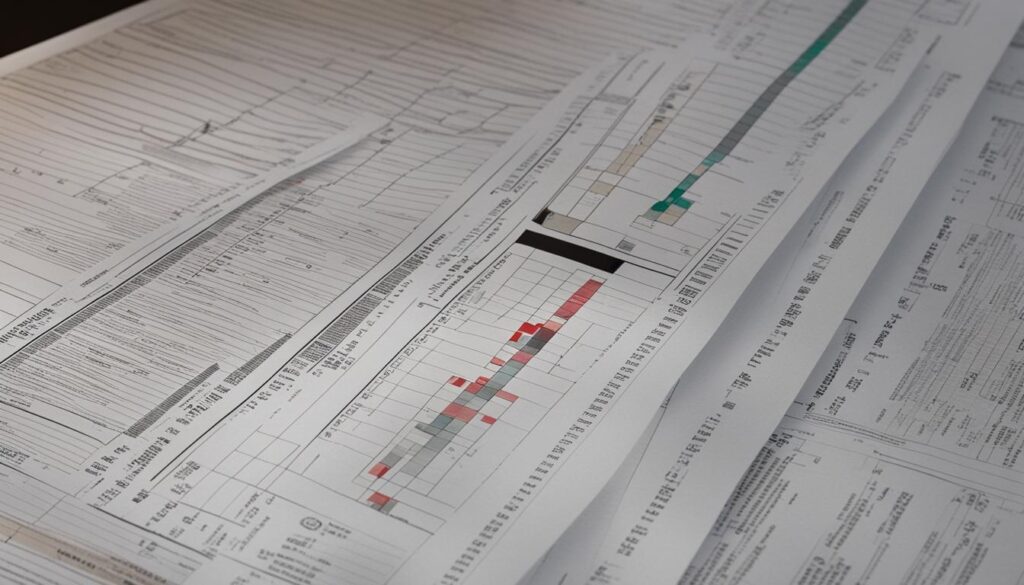Physical Address
304 North Cardinal St.
Dorchester Center, MA 02124
Physical Address
304 North Cardinal St.
Dorchester Center, MA 02124

Filing for divorce in Missouri can feel like traversing the rolling hills of the Ozarks — a journey that’s both legally complex and emotionally significant. Missouri’s divorce process is marked by its own set of laws and requirements, forming a path with distinct contours.
From residency qualifications to the details of legal paperwork, each element is crucial to your journey. But navigating this terrain need not be a solitary endeavor. This article is your guide, helping you chart a course through Missouri’s divorce laws.

We’ll demystify the legal language and address the emotional aspects of this path. Are you ready to embark on this journey in the Show-Me State? Keep reading to learn about the essential steps for filing for divorce in Missouri, and take your first step towards a new chapter with clarity and confidence.
For more on how to file for divorce, check out our article, How to File for Divorce: A Concise Guide for Couples.
In order to file for divorce in Missouri, you must meet certain eligibility requirements.
One of the key requirements is that either you or your spouse must be a legal resident of the state for at least 90 days.
This residency requirement ensures that the divorce is filed within the appropriate jurisdiction. You’ll need to have proof of residency, such as a driver’s license or utility bills when filing for divorce.
Filing for divorce in Missouri is based on a single ground: that the marriage is “irretrievably broken.” This means there is no reasonable chance of reconciliation between the spouses.
The concept of irretrievable breakdown serves as the primary basis for divorce in the state. However, there are additional circumstances that can be considered relevant in obtaining a divorce.
Missouri recognizes that living separate and apart for a continuous period of at least 24 months is a valid ground for divorce. In this case, both spouses must have lived separately during this time.
Additionally, fault-based grounds, such as adultery, abandonment, or cruel and inhuman treatment, can be presented as evidence to support a divorce claim. Note that fault-based grounds may have an impact on child custody and property division.
When filing for divorce in Missouri, consider the specific circumstances of your case and consult with a legal professional to determine the most appropriate grounds to proceed with. A knowledgeable attorney can provide guidance and help navigate the complexities of the divorce process, ensuring that your rights and interests are protected.
| Ground for Divorce | Description |
|---|---|
| Irretrievable Breakdown | The marriage is beyond repair, with no reasonable likelihood of reconciliation. |
| Living Separate and Apart | The spouses have lived separately and apart for a continuous period of at least 24 months. |
| Fault-Based Grounds | Adultery, abandonment, or cruel and inhuman treatment can serve as evidence to support a divorce claim. |

Before filing for divorce in Missouri, take the time to prepare yourself both emotionally and practically. Divorce can be a complex and challenging process, but with careful planning and organization, you can navigate it more smoothly.
Here are some key steps to help you prepare for divorce:
By taking these steps to prepare for divorce, you’ll be better equipped to handle the challenges that may arise during the process. Remember, it is often a good idea to consult with a qualified attorney to guide you through the legal aspects of divorce in Missouri.
| Financial Documents | Personal Documents |
|---|---|
| Bank statements | Marriage certificate |
| Tax returns | Birth certificates |
| Pay stubs | Social security cards |
| Mortgage statements | Driver’s licenses |
| Investment account statements | Passports |
These are just a few examples of the documents you may need to gather for your divorce. Consult with your attorney for a comprehensive list based on your specific circumstances.
Filing for divorce in Missouri requires completing and filing specific forms. These forms provide essential information about the marriage, assets, debts, and any children involved. Accurately and thoroughly filling out these forms is crucial to ensure a successful filing.
Some of the commonly used divorce forms in Missouri include:
Carefully read and follow the instructions provided with each form to ensure that all required information is provided. Failure to accurately complete the forms can result in delays or complications in the divorce process.
| Form | Purpose |
|---|---|
| Petition for Dissolution of Marriage | To initiate the divorce process and provide details about the marriage and grounds for divorce. |
| Statement of Income and Expenses | To disclose income, expenses, and financial obligations of both parties. |
| Statement of Property and Debt | To list all assets and debts owned by the couple, including real estate, bank accounts, vehicles, and loans. |
| Parenting Plan | To outline custody and visitation arrangements for minor children involved in the divorce. |
Once the forms are completed, they should be printed, signed, and filed with the appropriate court. Keep copies of all filed forms for personal records.
The divorce papers must be filed with the Circuit Court in the county where either you or your spouse resides. Each county in Missouri has its own court, so you’ll need to determine the correct court to file the divorce papers.
To find the appropriate court, you can use online resources such as Missouri’s “Find a court search” tool. This tool allows you to search for the court based on the county or city and provides contact information and details about the court’s jurisdiction.
Make sure to double-check the information to ensure you are filing in the correct court.
Familiarizing yourself with the court system in Missouri can also be helpful. The court system in Missouri consists of different levels, including municipal courts, associate circuit courts, and circuit courts.
The circuit court is the main trial court in Missouri and handles family law matters, including divorces. Understanding the structure and procedures of the court system can make the divorce process smoother and less confusing for you.
| Court Level | Description |
|---|---|
| Municipal Court | Handles ordinance violations and traffic offenses. |
| Associate Circuit Court | Handles misdemeanor cases, small claims, and preliminary hearings for felony cases. |
| Circuit Court | The main trial court in Missouri, handles divorces, civil cases, and felony criminal cases. |

Once you have gathered all the necessary information and documents, it’s time to fill out the divorce forms in Missouri.
These forms provide essential details about your marriage, assets, debts, and any children involved. Make sure to accurately and thoroughly complete the forms, as any errors or omissions can cause delays in the filing process.
Start by carefully reading the instructions provided with each form. This will help ensure that you understand what information is required and how to provide it correctly. Take your time and double-check your answers before finalizing the forms.
Once the forms are filled out, it’s time to file them with the court. You will need to submit the original forms, along with any required copies, to the appropriate circuit court in the county where either you or your spouse resides.
Be prepared to pay the filing fees, which can vary depending on the county and the specifics of your case.
| Filing Forms Checklist: |
|---|
| 1. Complete all necessary divorce forms accurately and thoroughly. |
| 2. Review the instructions provided with each form to ensure compliance. |
| 3. Make required copies of the forms. |
| 4. File the original and copies of the forms with the appropriate circuit court. |
| 5. Pay the required filing fees. |
Remember to keep copies of all filed documents for your records. This will help you stay organized and provide proof of your actions throughout the divorce process.
Filling out and filing divorce forms in Missouri can be a complex task, so don’t hesitate to seek professional guidance or consult an attorney if you have any questions or concerns.
Once the divorce papers are filed with the court, they must be properly served to the other party. This is an important step in the divorce process, as it ensures that the other party is aware of the proceedings and has the opportunity to respond.
There are various methods for serving divorce papers in Missouri, including personal service by a sheriff, court officer, or private process server.
Be sure to comply with the legal requirements for serving papers to avoid delays or complications in the process.
After being served with the divorce petition, the other party has a specific timeframe to respond. If you are served, carefully read through the petition and understand the allegations and requests made by the filing party.
Responding to the divorce petition typically involves filing an “Answer” or a “Response” with the court. This document outlines the responding party’s position on the issues raised in the petition, such as child custody, property division, and spousal support.
During the response phase, it is recommended to consult with an attorney to ensure that your rights and interests are protected. An attorney can provide guidance on the appropriate legal response and help navigate the complexities of the divorce process.
They can also assist in negotiating and reaching agreements with the other party, or represent your interests in court if necessary. Having legal representation can provide peace of mind and ensure that you are making informed decisions throughout the divorce process.
| Serving Papers | Responding to Petition |
|---|---|
| Ensure proper service of divorce papers | Read and understand the divorce petition |
| Methods include personal service by a sheriff, court officer, or private process server | File an “Answer” or “Response” with the court |
| Comply with legal requirements for serving papers | Outline your position on the issues raised in the petition |
| Avoid delays or complications in the process | Meet the deadline for responding to the petition |
| Consult with an attorney for guidance and representation |

When filing for divorce in Missouri, you’ll want to understand the importance of financial disclosures. These documents provide a comprehensive overview of your financial situation, including assets, debts, income, and expenses.
The court relies on this information to make fair decisions regarding property division and potential support obligations.
Financial disclosures are typically completed through specific forms, such as the “Statement of Income and Expenses” and the “Statement of Property and Debt and Proposed Separation Agreement.” These forms require detailed and accurate information, so carefully review and complete them.
By providing transparent and comprehensive financial disclosures, you contribute to a fair and equitable divorce process. Failure to disclose relevant financial information can result in legal consequences and may jeopardize the outcome of your case.
| Key Financial Documents to Consider: |
|---|
| Bank statements |
| Investment and retirement account statements |
| Tax returns and W-2 forms |
| Pay stubs |
| Mortgage and loan documents |
| Insurance policies |
| Business ownership documents |
It is advisable to consult with a financial professional or an attorney experienced in family law matters to ensure that all relevant financial documents are included in your disclosures. This can help prevent any oversight or potential inaccuracies that may arise when completing the forms.

If you and your spouse have decided to file for divorce in Missouri and you want to handle the process on your own, you can do so without hiring an attorney. Filing for divorce without an attorney, also known as self-representation, can save you on legal fees, but it does require a thorough understanding of the divorce process and the ability to accurately complete the necessary forms.
Before proceeding with self-representation, familiarize yourself with the specific requirements and procedures in Missouri. This includes understanding the eligibility criteria, the grounds for divorce, and the necessary financial disclosures.
Additionally, you should gather all relevant documents, such as information about assets, debts, income, and expenses.
While representing yourself in a divorce case may seem daunting, Missouri provides resources to assist individuals who choose to self-represent. The Litigant Awareness Program, for example, offers guidance and information on navigating the family law system. Take advantage of these resources and educate yourself on the legal aspects of divorce.
Filing for divorce without an attorney can have several benefits, including cost savings and the ability to have direct control over your case. It allows you to make decisions without external influence and can provide a more personalized approach to resolving issues.
However, be sure you understand the potential challenges and complexities that can arise during the process.
Filing for divorce in Missouri involves several important steps that you need to follow to ensure a successful outcome.
First, make sure you meet the eligibility requirements, such as being a resident of Missouri for at least 90 days and determining if your marriage is irretrievably broken.
Then, take the time to prepare for the divorce by gathering all the necessary financial and personal documents and considering the emotional and practical aspects of the process.
Once you’re ready, fill out the required divorce forms accurately and thoroughly. Remember that each county in Missouri has its own court, so make sure you file the forms in the correct location.
Follow the specific filing instructions provided by the court and keep copies of all the documents for your records. After filing, ensure that the divorce papers are properly served to your spouse and be aware of their timeframe to respond to the petition.
Financial disclosures are an essential part of the divorce process in Missouri. Be transparent and provide accurate information about your assets, debts, income, and expenses. This will help ensure a fair property division and determination of support obligations.
If you choose to file for divorce without an attorney, make sure you have a good understanding of the process and utilize available resources, such as the Litigant Awareness Program.
By following these steps and taking the necessary precautions, you can navigate the divorce process in Missouri with confidence. Whether you choose to hire an attorney or represent yourself, thorough preparation and adherence to the process can lead to a successful resolution. Good luck with your divorce proceedings.
To see how this process of filing for divorce in Missouri compares to that in other states, check out our articles about how to file for divorce in Arkansas and filing for divorce in Illinois.
Either you or your spouse must be a legal resident of Missouri for at least 90 days.
The only ground for divorce in Missouri is that the marriage is “irretrievably broken.”
It is important to gather and organize all relevant financial and personal documents and consider the emotional and practical aspects of divorce.
You will need to complete and file the “Petition for Dissolution of Marriage” and the “Statement of Income and Expenses” forms, among others.
You must file the divorce papers with the Circuit Court in the county where either you or your spouse resides.
After completing the necessary forms, you must file them with the court and serve them to the other party.
You are required to provide information about assets, debts, income, and expenses through specific forms such as the “Statement of Income and Expenses.”
Yes, it is possible to file for divorce without an attorney, but it requires a thorough understanding of the process and accurate completion of the necessary forms.
The filing fees range from around $125 to $200, depending on the county and the specific circumstances of the case.